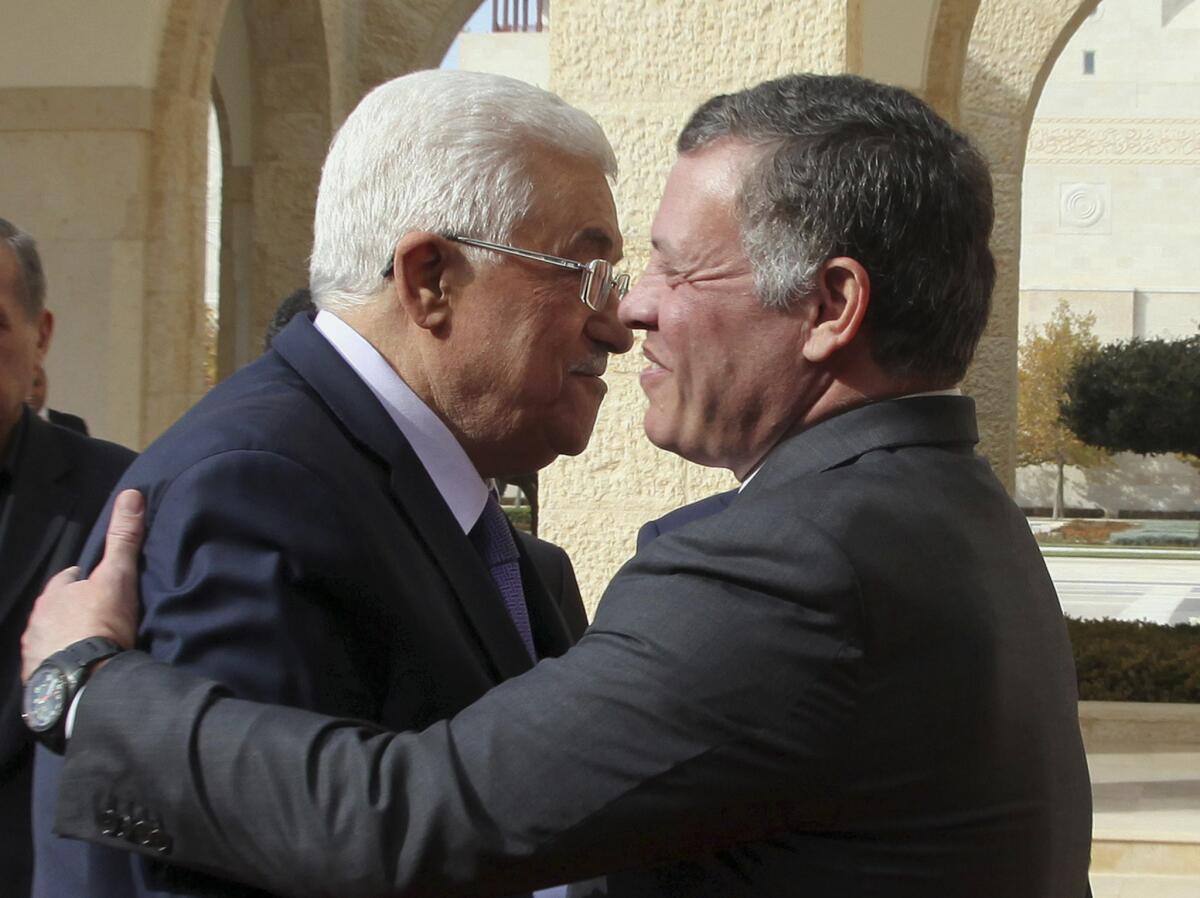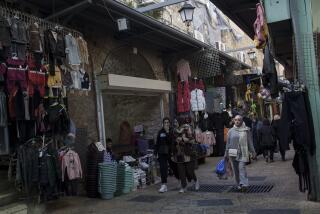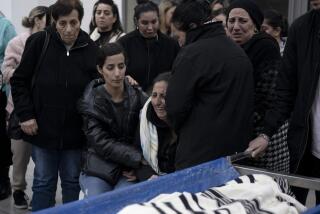Israeli and Palestinian tension high as Kerry goes to Jordan for talks

Israeli authorities on Wednesday gave preliminary approval to the expansion of a Jewish neighborhood in East Jerusalem, a step likely to heighten tension within the troubled city and draw disapproval from the Obama administration.
The Israeli move came shortly before Secretary of State John F. Kerry was to arrive in neighboring Jordan, where he was expected to hold talks aimed at easing friction over a contested holy site in Jerusalem’s walled Old City of which Jordan is the formal custodian.
An escalating quarrel over the plateau, known to Jews as the Temple Mount and to Muslims as the Haram al Sharif, or Noble Sanctuary, has triggered weeks of street clashes in Jerusalem, and played a role in a spate of deadly attacks.
Palestinians claim East Jerusalem — which was annexed by Israel in 1967 in a move that was not internationally recognized — as the capital of their future state, and the enlargement of Jewish enclaves in traditionally Arab parts of the city has been a source of growing anger. The United States and other Western governments have been highly critical of Israel building beyond the so-called Green Line, the pre-1967 border.
With the tempo of Palestinian protests quickening in the West Bank and East Jerusalem, Wednesday brought word of a break in a divisive case involving the deaths of two teenage Palestinians during a demonstration six months ago outside the city of Ramallah.
A police spokesman confirmed that a member of Israel’s paramilitary border police had been arrested in connection with the death of one of the teens, and was suspected of having lied to investigators. Security forces at the time denied using live ammunition, but Israeli news reports said a bullet that killed one of the youths had been matched to the officer’s weapon.
In Wednesday’s action involving Jewish building in East Jerusalem, a city panel gave initial approval for 200 new homes in the Ramot neighborhood. Municipal spokeswoman Brachie Sprung said the step was an early part of the planning process, and that the homes may not be built for years.
She also said simultaneous approval for the building of 174 housing units in three Arab neighborhoods demonstrated that there was “no political message” in the endorsement of more home-building in Ramot, populated mainly by ultra-Orthodox Jews.
Nonetheless, the move comes at a highly sensitive time. Israel this week stepped up its police presence in towns and cities and redeployed hundreds of troops in the West Bank after a pair of stabbing attacks by Palestinian assailants killed a female Jewish settler in the West Bank and an Israeli soldier in Tel Aviv.
Jerusalem had already been on edge after two recent episodes in which Palestinian drivers plowed into passengers waiting at tram stops, killing four people.
Before Kerry’s visit to Jordan, Palestinian Authority President Mahmoud Abbas traveled to Amman to meet with King Abdullah II. Under a long-standing agreement, Jordan’s Hashemite monarchy is the guardian of the contested holy site in all but security matters.
The status of the compound set off an angry exchange Tuesday, with Abbas accusing Israel of fomenting a “religious war” and Prime Minister Benjamin Netanyahu accusing the Palestinian leader of incitement.
Jews are allowed to visit the mount, but are banned from praying there. Jewish activists’ calls to lift the prayer ban have fueled Palestinian fear that Israel is trying to take over the plateau, which includes Al Aqsa mosque, the third-holiest site for Muslims worldwide.
The controversy has caused domestic political problems for Abdullah, who risks alienating a Palestinian majority in the kingdom if he appears insufficiently vigilant on the holy site. Jordan this month recalled its ambassador to Israel after a one-day closure of the compound.
After meeting Abbas, Jordan said in a statement that Abdullah had declared that any encroachments on the mount and Al Aqsa mosque were “utterly condemnable.”
As tension has risen, venues of worship have been targeted on both sides. A suspected arson attack badly damaged a mosque in a West Bank village overnight, and a firebomb was thrown at a landmark synagogue in an Arab town in northern Israel.
King is a Times staff writer and Sobelman is a special correspondent.
Twitter: @laurakingLAT
More to Read
Start your day right
Sign up for Essential California for news, features and recommendations from the L.A. Times and beyond in your inbox six days a week.
You may occasionally receive promotional content from the Los Angeles Times.






